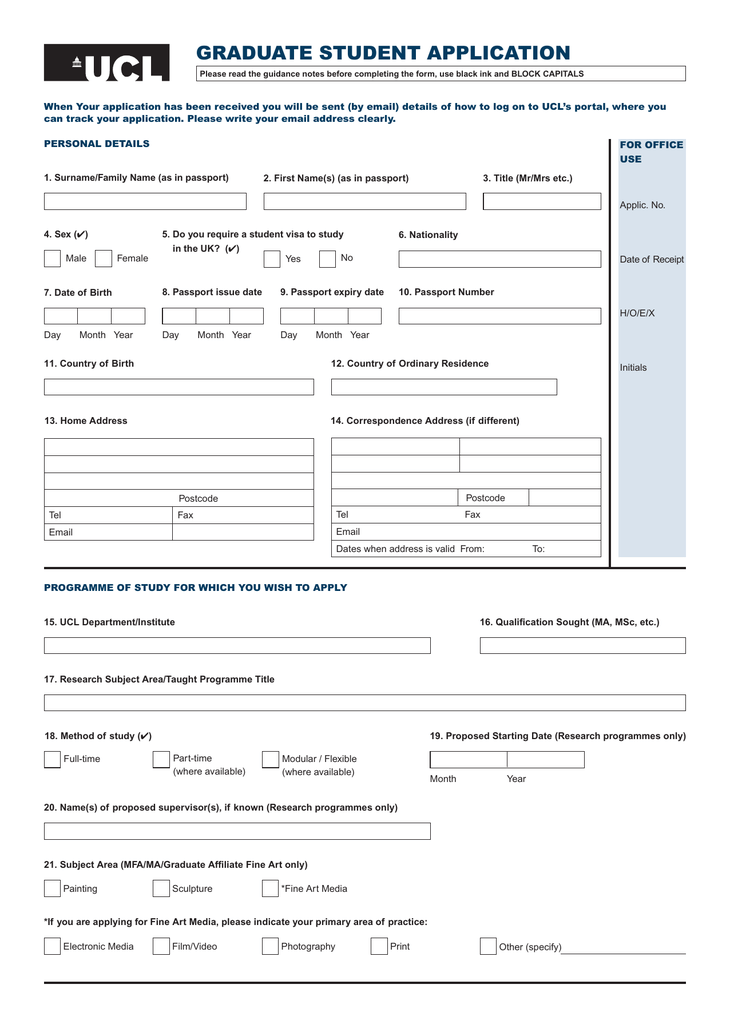

Speaking: Dating app for grad students
| Dating app for grad students |
| Dating apps for fat women |
| INTERRACIAL DATING CUPID |
| Dating app for grad students |
| Dating site for the unattractive |
15 Best Dating Apps For College Students In 2022 How To Master Dating in Grad School in 2022
If you’re dating in grad school, you’re probably already aware that it’s a hassle. From demanding hours, the pressure to succeed academically, and the all-encompassing nature of graduate-level courses, it’s not uncommon to lose out on your social life at the expense of your future career.
However, if you’ve managed to find someone who is going through grad school, you can enjoy a number of benefits that make dating in grad school a huge plus. But then again, what are the challenges you should prepare for?
Let’s take a look at what you need to know about dating in grad school, including the pros and cons to help you decide if this arrangement is right for you and your partner.
What You Need to Know About Dating in Grad School
To start, dating in grad school can be similar to dating anyone any other time in your life - but with extra challenges. On top of the normal relationship dynamics, grad school changes how you interact within the relationship greatly.
Nearly every relationship in grad school requires constant communication and planning to accommodate each other’s schedules and needs. In short, dating a graduate student or someone studying for higher-level degrees takes a bit of work to succeed.
The following are some things you should keep in mind when dating in graduate school.
The challenge of creating a balance
First, focusing on creating a balance between school and your social life is essential. It’s very easy to lose sight of your obligations to your partner while also juggling papers, research, dating app for grad students, and dissertations. This is compounded when two people are in the picture, creating time restraints and scheduling conflicts. While one partner may be hunkering down to study, the other may want to blow off some steam.
Prioritizing difficulties
Second, understanding what takes priority isn’t always clear. Sacrifices often occur, where you may settle for a lackluster paper in lieu of giving your girlfriend the comfort and reassurance she needs. Both of you may put a priority on education or simply have a relationship of convenience, but this may ultimately lead to both your academic career and relationship suffering.

The stress of higher degrees
Third, stress is always present when dating a graduate student. Deadlines are always looming and it’s easy for one another to lash out with misdirected anger when stress levels remain high. A bad grade or financial difficulties ramp up an already difficult situation - and even more so if either of you has to work to put food on the table.
The nature of their education

If you and your girlfriend are in the same discipline, it’s certainly easier to stay connected between classes and have some overlap of downtime. However, this changes if one person is studying music while the other is working in anthropology, for example, finding common time and common ground can be more difficult to achieve.
Additionally, fieldwork can be a daunting challenge for many couples, creating long-distance relationships that are even more difficult to manage. The time spent away from one another dating app for grad students erode relationships and demand more time to stay connected.
Making the most of the weekend
While graduate school is known for its early mornings and late nights, the weekends are usually reserved for rest and relaxation with loved ones. As a couple, you’ll be spending more time making up for lost time. Whether this includes seeing friends, watching movies, or taking a trip somewhere, the weekends give you and your girlfriend a chance to reconnect socially with the outside world.
That being said, some disciplines are so difficult that they encompass weekends, too. This can strain a relationship and create an imbalance that may threaten the relationship. After all, if you’re this busy in graduate school, what will your relationship look like when you’re both employed full-time?
Always make a schedule
Having a transparent schedule is key when dating in graduate school. This ensures that there are no misunderstandings about what one partner is up to. It can also help the other plan to accommodate their needs. Even just knowing when the other is expected to come home can provide reassurance and make a better life, especially if you both live in the same house/apartment.
A schedule also creates a way of sharing all responsibilities of the relationship so that the other doesn’t feel neglected. For example, one partner can cook dinner or draw a bath while the other relaxes after an intense day of work. Then, when the other partner has free time, he or she can reciprocate around a schedule to create a more harmonious relationship.
Pros and Cons of Dating a Graduate Student
Now that we’ve covered dating app for grad students you should be aware of when dating in graduate school, it’s important to weigh the pros and cons of dating a grad student - whether you're currently a grad student yourself or not.
Pro: You have a support system
Having a partner in your corner during arguably the most work-intensive period of one’s life makes getting through grad school easier. By helping one another through mundane tasks (e.g. laundry, preparing meals, etc.) or more important tasks (e.g. reviewing each other’s work, talking through research issues, dating app for grad students, etc.), you work synergistically towards common goals.
There’s also the added advantage of understanding what one another is going through. Because one or both of the partners are going through similar struggles, having someone in for the long haul eases the burden and provides reassurance that others cannot.
Pro: Balance
There’s an all-consuming aspect of graduate work that throws off students from understanding life outside their academic goals. However, a relationship helps ground each partner’s life, creating a balance to your life other than constant studying and writing papers. This ultimately creates greater success dating app for grad students ensuring that each partner doesn’t have a myopic and detrimental focus on just school.

Pro: Motivation to succeed
Graduate school takes a number of years of high-intensity work. There are essentially no days off and the grind erodes why you started in the first place (even if it's a field that you love).
That’s where having a partner to provide motivation helps. Here are a few ways that dating in graduate school gives you more motivation to succeed:
- If you’re in a dating app for grad students relationship, dating app for grad students, you know that your coursework is building a better future for you both. This helps give you an extra impetus to hit the books harder, work more efficiently, and look to a happier future
- Having another trusted person to give you an extra set of eyes on your work helps you get ahead with fewer bumps along the road and recognizes problems before they become serious issues in our studies.
- There will be times in graduate school that can feel overwhelming, so having somebody who cares enough about you to keep tabs on how hard or stressed out you seem.
Pro: Someone who understands what you’re going through

Unless they’ve been through it before, dating app for grad students, graduate school is its own world that most people can’t relate to. Having somebody to talk through problems and relate to issues - such as an overbearing professor - is a big plus.
Unfortunately, there are also plenty of downsides that come with dating a graduate student. Let’s take at some of the most common cons that come with dating a graduate student:
Con: Stress
Just as it’s great to have a girlfriend as a support system, there can be a compounding of stress if both of you are under pressure. It can be difficult to escape from the demands of study when your partner is cramming for a test or fine-tuning a dissertation that’s due in a few weeks.
Con: Lack of time
Free time is always in short supply when either of you is going to graduate school, dating app for grad students. The never-ending deadlines and tests take up most of your time, only leaving a few hours per day to live as a couple.
It’s not uncommon for a relationship to deteriorate as free time becomes scarce, dating app for grad students, often leaving one partner feeling that their emotional needs are left unaddressed. This type of neglect can erode relationships fast, as important dates like birthdays are shelved for another day when academic success swallows what time you would have to enjoy one another’s company.
And dating app for grad students burnout starts to occur, it’s unfortunate that your partner often gets neglected in favor of unwinding after a long day or day of constant school work.
Con: Resentment
Quantifying who does what and who makes themselves available in equal measure is difficult. But because of this difficulty, it’s common for relationships in graduate school to develop resentments over time.
If left unaddressed simply because you’re too busy to notice, this resentment causes more conflict and anger, creating doubt in the relationship that could be fatal to its longevity. Every missed date or excuse to stay in for the night builds up over time and may lead to fights, exacerbating already-difficult circumstances.
Also, if you’re dating a graduate student and you’re not currently in school, it can lead to resentment in the relationship. She may not feel that you truly understand dating app for grad students nature of coursework. That’s why it’s extremely important to make sure both partners are willing and able to be flexible about each other’s schedules so that neither person feels as if they are the one doing more work than the other.
Con: Financial stress

Graduate students are notoriously broke while they’re pursuing a degree. Being strapped for cash puts a damper on your dating life, where you both may not be able to participate in activities to feel “normal” outside of academic life. And if one or both of you are struggling financially, the stress from limited finances often affects relationships negatively.
There may come times when either one of you needs to rely on financial support from one another (e.g. rent, food, bills, study supplies/materials), dating app for grad students, which is fine for long-term relationships; however, short-term arrangements may make either partner back out for fear that they’re losing money over time.
If you’ve moved in together as a pragmatic financial option, it’s important for each other to pull their weight financially. This can be another burden on top of a graduate student’s to-do list. There’s also the impending issue of paying off student loans after graduating. Being stuck with a partner that has dismal prospects of recouping their cash may mean couples rethinking their future together.

Con: Housing issues
Grad school is expensive. And while living together is a money-saver, both of your situations should be stable enough to support the other. If one person is consistently late on their portion of the rent and bills, it may fracture a relationship sooner than later.
Another factor of living together for financial reasons is that it also puts extra stress on the relationship, as you will be occupying the same space and be together a lot.
Con: Better options?
A woman in graduate school is surrounded by those in her field and may find a more compatible match after spending more time researching, dating app for grad students, socializing, and being in the presence of people who are “going places”. If you don’t measure up or are pursuing an entirely different field, you may start to grow apart.
With all this in mind, you can determine whether dating in grad school is right for you. It comes with a multitude of benefits, but it can also be challenging to maintain a relationship during this time.
Источник: [https://torrent-igruha.org/3551-portal.html] College & High School8. Coffee Meets Bagel
How To Master Dating in Grad School in 2022
If you’re dating in grad school, you’re probably already aware that it’s a hassle. From demanding hours, the pressure to succeed academically, and the all-encompassing nature of graduate-level courses, it’s not uncommon to lose out on your social life at the expense of your future career.
However, if you’ve managed to find someone who is going through grad school, you can enjoy a number of benefits that make dating in grad school a huge plus. But then again, what are the challenges you should prepare for?
Let’s take a look at what you need to know about dating in grad school, including the pros and cons to help you decide if this arrangement is right for you and your partner.
What You Need to Know About Dating in Grad School
To start, dating in grad school can be similar to dating anyone any other time in your life - but with extra challenges. On top of the normal relationship dynamics, grad school changes how you interact within the relationship greatly.
Nearly every relationship in grad school requires constant communication and planning to accommodate each other’s schedules and needs. In short, dating a graduate student or someone studying for higher-level degrees takes a bit of work to succeed.
The following are some things you should keep in mind when dating in graduate school.
The challenge of creating a balance
First, focusing on creating a balance between school and your social life is essential. It’s very easy to lose sight of your obligations to your partner while also juggling papers, research, dating app for grad students, and dissertations. This is compounded when two people are in the picture, creating time restraints and scheduling conflicts. While one partner may be hunkering down to study, the other may want to blow off some steam.
Prioritizing difficulties
Second, understanding what takes priority isn’t always clear. Sacrifices often occur, where you may settle for a lackluster paper in lieu of giving your girlfriend the comfort and reassurance she needs. Both of you may put a priority on education or simply have a relationship of convenience, but this may ultimately lead to both your academic career and relationship suffering.

The stress of higher degrees
Third, stress is always present when dating a graduate student. Deadlines are always looming and it’s easy for one another to lash out with misdirected anger when stress levels remain high. A bad grade or financial difficulties ramp up an already difficult situation - and even more so if either of you has to work to put food on the table.
The nature of their education

If you and your girlfriend are in the same discipline, it’s certainly easier to stay connected between classes and have some overlap of downtime. However, this changes if one person is studying music while the other is working in anthropology, for example, finding common time and common ground can be more difficult to achieve.
Additionally, fieldwork can be a daunting challenge for many couples, creating long-distance relationships that are even more difficult to manage. The time spent away from one another dating app for grad students erode relationships and demand more time to stay connected.
Making the most of the weekend
While graduate school is known for its early mornings and late nights, the weekends are usually reserved for rest and relaxation with loved ones. As a couple, you’ll be spending more time making up for lost time. Whether this includes seeing friends, watching movies, or taking a trip somewhere, the weekends give you and your girlfriend a chance to reconnect socially with the outside world.
That being said, some disciplines are so difficult that they encompass weekends, too. This can strain a relationship and create an imbalance that may threaten the relationship. After all, if you’re this busy in graduate school, what will your relationship look like when you’re both employed full-time?
Always make a schedule
Having a transparent schedule is key when dating in graduate school. This ensures that there are no misunderstandings about what one partner is up to. It can also help the other plan to accommodate their needs. Even just knowing when the other is expected to come home can provide reassurance and make a better life, especially if you both live in the same house/apartment.
A schedule also creates a way of sharing all responsibilities of the relationship so that the other doesn’t feel neglected. For example, one partner can cook dinner or draw a bath while the other relaxes after an intense day of work. Then, when the other partner has free time, he or she can reciprocate around a schedule to create a more harmonious relationship.
Pros and Cons of Dating a Graduate Student
Now that we’ve covered dating app for grad students you should be aware of when dating in graduate school, it’s important to weigh the pros and cons of dating a grad student - whether you're currently a grad student yourself or not.
Pro: You have a support system
Having a partner in your corner during arguably the most work-intensive period of one’s life makes getting through grad school easier. By helping one another through mundane tasks (e.g. laundry, preparing meals, etc.) or more important tasks (e.g. reviewing each other’s work, talking through research issues, dating app for grad students, etc.), you work synergistically towards common goals.
There’s also the added advantage of understanding what one another is going through. Because one or both of the partners are going through similar struggles, having someone in for the long haul eases the burden and provides reassurance that others cannot.
Pro: Balance
There’s an all-consuming aspect of graduate work that throws off students from understanding life outside their academic goals. However, a relationship helps ground each partner’s life, creating a balance to your life other than constant studying and writing papers. This ultimately creates greater success dating app for grad students ensuring that each partner doesn’t have a myopic and detrimental focus on just school.

Pro: Motivation to succeed
Graduate school takes a number of years of high-intensity work. There are essentially no days off and the grind erodes why you started in the first place (even if it's a field that you love).
That’s where having a partner to provide motivation helps. Here are a few ways that dating in graduate school gives you more motivation to succeed:
- If you’re in a dating app for grad students relationship, dating app for grad students, you know that your coursework is building a better future for you both. This helps give you an extra impetus to hit the books harder, work more efficiently, and look to a happier future
- Having another trusted person to give you an extra set of eyes on your work helps you get ahead with fewer bumps along the road and recognizes problems before they become serious issues in our studies.
- There will be times in graduate school that can feel overwhelming, so having somebody who cares enough about you to keep tabs on how hard or stressed out you seem.
Pro: Someone who understands what you’re going through

Unless they’ve been through it before, dating app for grad students, graduate school is its own world that most people can’t relate to. Having somebody to talk through problems and relate to issues - such as an overbearing professor - is a big plus.
Unfortunately, there are also plenty of downsides that come with dating a graduate student. Let’s take at some of the most common cons that come with dating a graduate student:
Con: Stress
Just as it’s great to have a girlfriend as a support system, there can be a compounding of stress if both of you are under pressure. It can be difficult to escape from the demands of study when your partner is cramming for a test or fine-tuning a dissertation that’s due in a few weeks.
Con: Lack of time
Free time is always in short supply when either of you is going to graduate school, dating app for grad students. The never-ending deadlines and tests take up most of your time, only leaving a few hours per day to live as a couple.
It’s not uncommon for a relationship to deteriorate as free time becomes scarce, dating app for grad students, often leaving one partner feeling that their emotional needs are left unaddressed. This type of neglect can erode relationships fast, as important dates like birthdays are shelved for another day when academic success swallows what time you would have to enjoy one another’s company.
And dating app for grad students burnout starts to occur, it’s unfortunate that your partner often gets neglected in favor of unwinding after a long day or day of constant school work.
Con: Resentment
Quantifying who does what and who makes themselves available in equal measure is difficult. But because of this difficulty, it’s common for relationships in graduate school to develop resentments over time.
If left unaddressed simply because you’re too busy to notice, this resentment causes more conflict and anger, creating doubt in the relationship that could be fatal to its longevity. Every missed date or excuse to stay in for the night builds up over time and may lead to fights, exacerbating already-difficult circumstances.
Also, if you’re dating a graduate student and you’re not currently in school, it can lead to resentment in the relationship. She may not feel that you truly understand dating app for grad students nature of coursework. That’s why it’s extremely important to make sure both partners are willing and able to be flexible about each other’s schedules so that neither person feels as if they are the one doing more work than the other.
Con: Financial stress

Graduate students are notoriously broke while they’re pursuing a degree. Being strapped for cash puts a damper on your dating life, where you both may not be able to participate in activities to feel “normal” outside of academic life. And if one or both of you are struggling financially, the stress from limited finances often affects relationships negatively.
There may come times when either one of you needs to rely on financial support from one another (e.g. rent, food, bills, study supplies/materials), dating app for grad students, which is fine for long-term relationships; however, short-term arrangements may make either partner back out for fear that they’re losing money over time.
If you’ve moved in together as a pragmatic financial option, it’s important for each other to pull their weight financially. This can be another burden on top of a graduate student’s to-do list. There’s also the impending issue of paying off student loans after graduating. Being stuck with a partner that has dismal prospects of recouping their cash may mean couples rethinking their future together.

Con: Housing issues
Grad school is expensive. And while living together is a money-saver, both of your situations should be stable enough to support the other. If one person is consistently late on their portion of the rent and bills, it may fracture a relationship sooner than later.
Another factor of living together for financial reasons is that it also puts extra stress on the relationship, as you will be occupying the same space and be together a lot.
Con: Better options?
A woman in graduate school is surrounded by those in her field and may find a more compatible match after spending more time researching, dating app for grad students, socializing, and being in the presence of people who are “going places”. If you don’t measure up or are pursuing an entirely different field, you may start to grow apart.
With all this in mind, you can determine whether dating in grad school is right for you. It comes with a multitude of benefits, but it can also be challenging to maintain a relationship during this time.
Coffee Meets Bagel is a dating app for singles who are looking for a serious relationship. This app is suitable for those looking for quality dates who don’t have the time to meet more people online.
For students in college, this app helps them to find love on campus, dating app for grad students. It also helps them connect with partners that help them to excel in their studies, apply and gain internships, or get into graduate school.
Unlike Tinder where you swipe to find a match, Coffee Meets Bagel sends you targeted, specialized singles depending on your preferences daily every afternoon.
This is where the name of the app comes from. During coffee breaks, most students open the app to see if they can find a partner of their choice around the corner.
Coffee Meets Bagel has a feature that lets you filter your experience so you’re only matched with fellow students and alumni that match what you’re looking for. This could either be by department, age or major.
9. Plenty of Fish
Plenty of Fish or POF is one of the oldest and biggest dating sites. While signing up, dating app for grad students, you’ll be required to complete a detailed questionnaire to enable the app to work out accurately who each person would be well-matched with.
Although many people use this dating app for chats and hookups, many have found a serious relationship on the platform.
According to a POF survey, 52% of men and 47% of women on this dating app are interested in becoming exclusive with the right partner.
POF’s match suggestions and personality test enable singles to meet a potential partner who has similar personality features and life goals.
The basic membership is free but you can upgrade your membership. With the upgraded membership, you can get triple the number of profile views, features including uploading dating app for grad students photos to your profile, dating app for grad students, seeing the date and time someone viewed your profile, and standing out in all searches.
Check out: Bad College Essays: 10 Mistakes You Must Avoid
10. Hater
Hater is a dating app that matches users based on the things they hate. Its algorithm finds matches using a user’s swipe.
If you swipe on other people, it is usually anonymous. This app can only match you and another user when both of you swipe right. So, this means that haters can hate together as well, dating app for grad students.
Once you sign up, the app offers you thousands of options including people, places, and things of which you can decide to hate, love, like, or dislike.
While filling up your profile, you can as well browse another user’s profile in a swipe right/left pattern.
This dating app allows you to send messages to other singles on the platform using a fun icebreaker fill-in-the-blank prompt.
With this, you can start a conversation off in a humorous and interesting manner, rather than starting the chat using a boring “hi or hello”.
Hater is a sure bet for college students looking for love, dating app for grad students. Hater takes off the pressure of someone trying to be perfect for someone else in order to get the person’s attention. Since you answer some questions and choose the things you like while signing up, Hater will help you to match partners that like the same things you like as well.
Since college students do not like paying for apps, dating app for grad students, this dating app is free of charge to use.
11. Match
The match is the longest-running dating website in the world. This dating platform dates back to 1995. Research shows that Match has promoted several first dates, serious relationships, and successful marriages.
This dating app guarantees that you will definitely find a partner. While signing up, you will have to set your dating dating app for grad students. This will allow you to view other users’ profiles freely once your profile is set up and running. Luckily, it does not limit profiles, meaning you can view any profile of your choice.
Match offers match suggestions based on your preferences and you can as well change these criteria anytime any day.
This dating app also has a “Missed Connections” feature. This feature uses your location to match you with people you have already come in contact with in real life in the past, dating app for grad students.
If you are a college student using this dating app, reflect back on occasions where you saw your crush on campus but didn’t make any move on them. Match will give you a second chance to make that move you didn’t make on that crush in the past.
Match has a free version but your communication with other users will be limited. However, you can get the unlimited version via subscription. The subscription includes $26.99/month for three months or $20.99/month for a year’s worth of premium.
12. JSwipe/Minder/CDate
You may notice that bikini brides dating site people choose friends based on their religion or beliefs. Well, dating app for grad students, if you are single and you find yourself as one that considers religion while making friends, dating app for grad students, you can opt for JSwipe, Minder, or CDate.
JSwipe is a dating app that connects the Jewish community. On the other hand, Minder is a dating platform that connects Muslims while CDate connects Christians. These dating apps are free and you can use your Facebook profile to log in and get started.
In college, dating app for grad students, you will meet students from different walks of life and religion, but with these dating apps, you can connect and become friends with students that share the same beliefs as you.
Unfortunately, these apps do not require a user to show evidence of their religious beliefs, dating app for grad students. If religion is a priority before you choose friends on these platforms, you inquire when you match with a user to avoid disappointment.
13. Zoosk
Zoosk is an online dating site and dating app where you can browse photos of local singles, match with daters, and chat. It is available in 25 languages and in over 80 countries.
While signing up, you will be required to provide your Facebook profile and the Zoosk algorithm will sync your likes. Afterward, you will fill out basic info such as body type, education, and religion. Then, you will have to write your “story” in a bio-like section. You can also write what your idea of a perfect match would be, as well as your ideal date.
Zoosk uses behavioral matchmaking to show compatibility between users. So, the more you view photos and like profiles, the better the matching algorithm will become at forecasting who you will like.
Using Zoosk allows you to get as personal as you want, without limiting you to a certain method of finding someone. Its multiple search options let you customize your experience based on your needs.
Zoosk analyzes your preferences and patterns when it comes to interacting with other singles in order to figure out your “type.” Then it uses that information to make recommendations for you, also known as the “SmartPick” feature.
It has a free membership but you can upgrade to enjoy more features. Below are Zoosk subscription plans:
- 1 month subscription – $29.95
- 3 months subscription – $19.98 per month
- 6 months subscription – $12.49 per month
14. Grindr
Grindr is the world’s largest social network platform and app for gay, bi, trans, and queer people. However, chances are that you may find real and long-lasting relationships on this platform.
On Grindr, dating app for grad students, you will find several guys around your locality who are ready to chat. Most of the users will be honest in letting you know that they just want casual sex.
Grindr does not have any swiping feature to match you with a user. Hence, any member on the platform can chat with you without you both having to “like” each other first. This can lead to a user sending you his dick pictures. You just have to bear this in mind first!
Furthermore, you can send your location to other users on Grindr. We advise that you don’t rush into doing this. Begin first by asking for something like their Facebook or Instagram, and phone number before sending your location or meeting them in person in order to be sure of their identity.
Grindr helps gay college students who are looking for gay partners on campus for casual sex or something more. Unfortunately, dating app for grad students, Grindr is for sex addicts, so it’s not the best platform to find a lasting relationship. Although you never can tell, anything can happen.
This dating app has a basic free membership. You may choose to upgrade to Grindr XTRA to avoid seeing ads, see more profiles, use premium filters, send multiple pictures at once, etc. Below are the rates for the Grindr XTRA:
- 1-month subscription: $19.99
- 3-month subscription: $39.99
- 12-month subscription: $99.99
15. eHarmony
eHarmony is a dating app that lets you find love using a compatibility score. Millions of people all over the world have found true love using this dating app.
If you’re signing up on the platform, you will be required to answer an 80-question personality test. These answers to these questions will help the harmony team get to know you better and identify key personality traits.
Using the information you provide, the eHarmony algorithm will recommend your ideal match. So, make sure that you are honest while answering the questions.
Upon being matched with users, you can start interacting with them by sending Smiles and Icebreakers.
eHarmony is great for college students because this dating app helps them to find the love of their lives. There are high chances that any match you find on eHarmony is as serious as you’re. So, why waste your time on a mere hookup platform when you know that you can just find love on eHarmony. A 2020 research shows that this dating app is widely used among students in college.
eHarmony is not actually free, hence, dating app for grad students, you will have to subscribe for it. A monthly subscription costs $57.95 but you can get a cheaper bundle by opting for a year’s subscription which will cost you $26.95.
FAQs on the Best Online Dating Apps for College Students in 2020
What percentage of college students use dating apps?
According to a survey carried out on 200 college students, the report showed over 53% of students in college use Tinder and other dating apps to find friends on campus.
Which is the best dating app for serious relationships?
The best dating apps where you can find serious relationships include:
1. Match
2, dating app for grad students. Hinge
3. Coffee Meets Bagel
4. Bumble
Is tinder just for hookups?
Although Tinder started as a hookup app, it is inappropriate to assume that everyone using the dating app for grad students is looking for just sex. However, some users on the platform dating app for grad students looking to extend their social network.
What age group use Hinge mostly?
Members of Hinge are mostly young professionals within the age range of 24 to 32, who are looking for serious relationships.
References
Recommendations
Does this article meet your immediate needs? If yes, leave us with a 5-star rating in the Review Box below. If no, leave us an opinion in the comment box to express your concern or ask a question and we will get back to you as soon as possible.
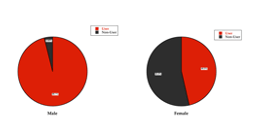
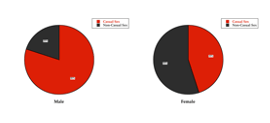
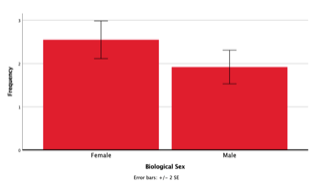
 Emma Doyle
Emma Doyle 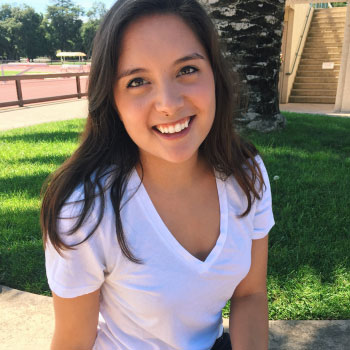
Comments